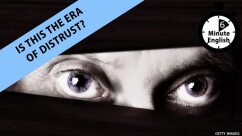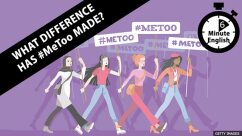circular_economy.mp3
circular_economy.pdf
Neil
Hello This is 6 Minute English with me, Neil
Sam
And me, Sam
Neil
Today, we’re talking rubbish
Sam
Ooh, that’s a bit harsh – I thought it was going to be interesting
Neil
I mean our topic is about rubbish, not that we are rubbish
Sam
I see Do go on
Neil
Thank you So the amount of waste we produce around the world is huge and it’s
a growing problem
Sam
But, there are some things that we can do, like recycling Where I live, I can
recycle a lot, and I’m always very careful to separate - to split my rubbish into
paper, metal, food, plastic and so on
Neil
But is that enough, even if we all do it? We’ll look a little more at this topic
shortly, but first, as always, a question Which country recycles the highest
percentage of its waste? Is it:
A: Sweden
B: Germany
C: New Zealand
?What do you think, Sam
Sam
I’m not sure, but I think it could be Germany so I’m going to go with that -
Germany
Neil
OK We’ll see if you’re right a little bit later on The BBC radio programme,
Business Daily, recently tackled this topic They spoke to Alexandre Lemille, an
expert in this area Does he think recycling is the answer? Let’s hear what he said
Alexandre Lemille
Recycling is not the answer to waste from an efficient point of view because we
are not able to get all the waste separated properly and therefore treated in the
background The main objective of our model is to hide waste so we don’t see as
urban citizens, or rural citizens, we don’t see the waste, it is out of sight and
therefore out of mind
Neil
?What’s his view of recycling
Sam
I was a bit surprised, because he said recycling wasn’t the answer One reason is
that it’s not always possible to separate waste you can recycle from waste you
can’t recycle, and that makes treating it very difficult Treating means handling
it and using different processes, so it can be used again
Neil
And the result is a lot of waste, including waste that could be recycled but which
is just hidden And as long as we don’t see it, we don’t think about it
Sam
And he uses a good phrase to describe this – out of sight, out of mind And that’s
true, at least for me My rubbish and recycling is collected and I don’t really think
about what happens to it after that Is as much of it recycled as I think, or is it just
buried, burned or even sent to other countries? It’s not in front of my house, so I
don’t really think about it – out of sight, out of mind
Neil
Let’s listen again
Alexandre Lemille
Recycling is not the answer to waste from an efficient point of view because we
are not able to get all the waste separated properly and therefore treated in the
background The main objective of our model is to hide waste so we don’t see as
urban citizens, or rural citizens, we don’t see the waste, it is out of sight and
therefore out of mind
Neil
One possible solution to this problem is to develop what is called a circular
economy Here’s the presenter of Business Daily, Manuela Saragosa, explaining
what that means
Manuela Saragosa
The idea then at the core of a circular economic and business model is that a
product, like say a washing machine or even a broom, can always be returned to
the manufacturer to be reused or repaired before then sold on again The point
is the manufacturer retains responsibility for the lifecycle of the product it
produces rather than the consumer assuming that responsibility when he or she
buys it
Neil
So it seems like a simple idea – though maybe very difficult to do
Sam
Yes, the idea is that the company that makes a product, the manufacturer, is
responsible for the product, not the person who bought it, the consumer
Neil
So, if the product breaks or reaches the end of its useful life, its lifecycle, then
the manufacturer has to take it back and fix, refurbish or have it recycled
Sam
I guess this would make manufacturers try to make their products last longer!
Neil
It certainly would Let’s listen again
Manuela Saragosa
The idea then at the core of a circular economic and business model is that a
product, like say a washing machine or even a broom, can always be returned to
the manufacturer to be reused or repaired before then sold on again The point
is the manufacturer retains responsibility for the lifecycle of the product it
produces rather than the consumer assuming that responsibility when he or she
buys it
Neil
That’s just about all we have time for in this programme Before we recycle the
vocabulary …
Sam
Oh very good Neil!
Neil
Before we - thank you Sam - before we recycle the vocabulary, we need to get
the answer to today’s question Which country recycles the highest percentage
of its waste? Is it:
A: Sweden
B: Germany
C: New Zealand
?Sam, what did you say
Sam
I think it’s Germany
Neil
Well I would like to offer you congratulations because Germany is the correct
answer Now let’s go over the vocabulary
Sam
Of course To separate means to divide or split different things, for example,
separate your plastic from your paper for recycling
Neil
Treating is the word for dealing with, for example, recycled waste
Sam
The phrase out of sight, out of mind, means ignoring something or a situation
you can’t see
Neil
A manufacturer is the person or company that makes something and the
consumer is the person who buys that thing
Sam
And the length of time you can expect a product to work for is known as its
lifecycle
Neil
Well the lifecycle of this programme is 6 minutes, and as we are there, or
thereabouts, it’s time for us to head off Thanks for your company and hope you
can join us again soon Until then, there is plenty more to enjoy from BBC
Learning English online, on social media and on our app Bye for now
Sam
Bye!
VOCABULARY
to separate
to divide or split different things into different categories or groups
to treat
to process or deal with, for example, recycled waste
out of sight, out of mind
a phrase that means we ignore or don’t think about what we don’t see
manufacturer
the person or company that makes a product
consumer
a person that buy a product
lifecycle
the length of time a product is designed to work for









